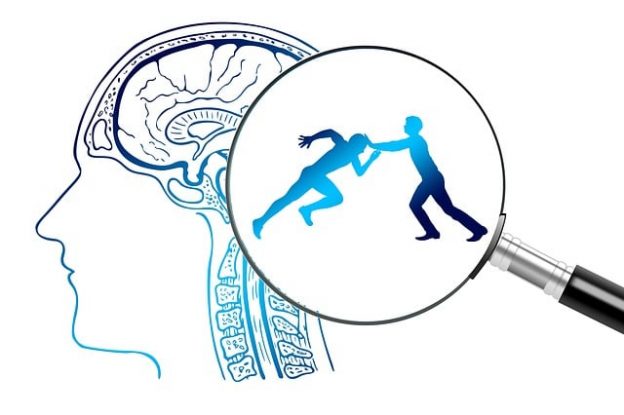I’ve seen countless clients struggle with limiting beliefs and negative self-talk. These patterns of thought can be incredibly damaging to one’s sense of self-worth and ability to achieve their goals.
Fortunately, there are strategies that can help individuals overcome these obstacles and develop a more positive mindset.
Firstly, it’s important to recognize when negative self-talk is happening and challenge those thoughts. This means acknowledging the evidence for and against the belief, examining any cognitive distortions or biases that may be influencing your thinking, and reframing the belief in a more balanced and realistic way.
Additionally, practicing self-compassion can help counteract the harsh inner critic by treating oneself with kindness and understanding rather than judgment.
With patience and persistence, individuals can learn to identify and overcome limiting beliefs and negative self-talk to live a fuller and happier life.
Recognizing Negative Self-Talk
 As we go through life, we often encounter situations and experiences that can trigger negative self-talk. It’s like a voice inside our heads that constantly tells us that we’re not good enough or capable of achieving our goals. This kind of thinking is what we call limiting beliefs, and it can hold us back from reaching our full potential.
As we go through life, we often encounter situations and experiences that can trigger negative self-talk. It’s like a voice inside our heads that constantly tells us that we’re not good enough or capable of achieving our goals. This kind of thinking is what we call limiting beliefs, and it can hold us back from reaching our full potential.
Identifying triggers for negative self-talk is the first step in overcoming them. Triggers are those things that activate these thoughts and emotions within us. They could be people, places, events or even memories that make us feel anxious, stressed or inadequate.
By recognizing these triggers, we become more aware of when they occur and how to avoid them. Effective reframing techniques are another way of dealing with negative self-talk. Reframing is all about changing the way we perceive a situation or experience in order to shift our perspective towards a more positive outlook.
For example, if you fail at something instead of telling yourself ‘I’m such a failure,’ reframe it as an opportunity to learn and grow by saying ‘This didn’t work out as planned, but I’ll try again.’ With practice, this technique can help replace limiting beliefs with empowering ones.
Remember, identifying your triggers and using effective reframing techniques take time and effort on your part. I encourage you to start small by simply noticing when negative self-talk arises, then slowly work towards challenging those thoughts with positive affirmations and realistic perspectives without being dishonest with oneself.
Challenging Limiting Beliefs
Limiting beliefs are those thoughts that hold us back from reaching our full potential. They can be deeply ingrained in our minds and may have been developed over time due to past experiences or negative self-talk.
Identifying triggers that lead to these limiting beliefs is crucial in order to challenge them effectively. One way to identify triggers for limiting beliefs is by paying attention to the situations or people that make you feel anxious or insecure. These triggers can range from work-related stressors, personal relationships, or even social media.
Once identified, it’s important to question the validity of these beliefs and challenge them with evidence-based thinking. It’s also beneficial to seek support when challenging limiting beliefs. Talking through your thoughts with a trusted friend or seeking professional help from a mental health counselor can provide valuable insight and perspective.
By working together, you can develop new ways of thinking that will help overcome negative thought patterns and ultimately improve overall well-being.
Examining Cognitive Distortions
Identifying cognitive distortions is an essential step in overcoming limiting beliefs and negative self-talk. Cognitive distortions are inaccurate, irrational thoughts that can lead to feelings of anxiety, depression, and low self-esteem. It’s important to recognize these patterns of thinking as they often go unnoticed and become habitual.
One common cognitive distortion is all-or-nothing thinking. This type of thinking involves seeing things in black or white without any gray area. For example, if someone receives a B on a test instead of an A, they may think they’re a failure rather than acknowledging their hard work paid off with a solid grade. To replace this thought pattern, encourage clients to focus on the positives and what they did well rather than solely focusing on perceived failures.
Another cognitive distortion is jumping to conclusions without evidence to support it. Clients who engage in this type of thinking assume the worst-case scenario without gathering facts first. Encourage them to ask themselves questions like ‘Is there evidence for my belief?’ or ‘What’s another way I could interpret this situation?’ By doing so, clients can challenge their initial assumptions and develop more balanced perspectives.
Replacing negative thought patterns takes time and practice but identifying cognitive distortions is the first step towards change. You have the opportunity to guide your clients through this process by teaching them new ways of thinking that will ultimately improve their mental wellbeing.
With patience and persistence, your clients can learn how to overcome limiting beliefs and achieve greater success in their personal and professional lives.
Practicing Self-Compassion
When we struggle with limiting beliefs and negative self-talk, it can be easy to fall into a cycle of self-criticism. However, cultivating empathy towards ourselves is key in breaking this pattern. We must learn to treat ourselves as we would treat a friend who is going through a difficult time.
One way to cultivate empathy for oneself is through mindful reflection. This involves taking the time to step back and observe our thoughts without judgment or criticism. By doing so, we can gain insight into the underlying emotions driving our negative self-talk and work towards addressing them with kindness and understanding.
Through practicing self-compassion, we can begin to break free from the grip of limiting beliefs and negative self-talk. Remembering that we are only human and that making mistakes is a natural part of life allows us to approach ourselves with greater compassion.
With each act of self-kindness, we strengthen our ability to show up for ourselves with love and support.
Developing A Positive Mindset
Have you ever felt like your negative self-talk is getting in the way of achieving your goals? It’s time to start developing a positive mindset by embracing the power of self-love. Instead of focusing on what you lack, shift your perspective towards what you already have and use that as a foundation for growth.
Positive affirmations are one effective tool to cultivate positivity and overcome limiting beliefs. Repeat phrases such as ‘I am worthy’ or ‘I trust myself’ regularly throughout the day, especially when facing challenges. These statements help reprogram negative thought patterns into more empowering ones.
Another helpful practice is gratitude journaling. Take 5-10 minutes each day to write down things you’re grateful for. This simple exercise shifts your focus from problems to blessings, and trains your brain to look for the good in situations instead of dwelling on the bad.
Here are five ways to develop a positive mindset:
- Practice daily affirmations
- Keep a gratitude journal
- Start meditating
- Surround yourself with positivity
- Set achievable goals
Remember, changing old habits takes time and effort but it’s worth it! Building a positive mindset allows us to see opportunities where we once saw obstacles. Celebrate small wins along the way and be kind to yourself during setbacks – after all, loving ourselves unconditionally is key to living our best life.
How Can I Determine Which Limiting Beliefs I Hold?
To identify the limiting beliefs that you hold, it is important to start by recognizing your triggers. These are situations or events that tend to trigger negative self-talk and doubt in yourself.
Once you have identified these triggers, journaling exercises can be helpful in uncovering underlying patterns of thought that may be contributing to these beliefs. Write down any negative thoughts or beliefs that come up during these triggering moments, and then ask yourself where they came from and if they are actually true.
By bringing awareness to these limiting beliefs, you can begin to challenge them and replace them with more positive and empowering ones.
What Are Some Techniques For Challenging Negative Self-Talk In The Moment?
To challenge negative self-talk in the moment, it’s important to first recognize when you’re engaging in that type of thinking.
One technique is to replace those negative thoughts with positive affirmations, such as ‘I am capable’ or ‘I am worthy.’
Another approach is cognitive restructuring, which involves examining and replacing irrational beliefs with more realistic ones. For example, instead of telling yourself ‘I always fail,’ try reframing it as ‘Sometimes I make mistakes, but I can learn from them and improve.’
These techniques take practice and patience, but can greatly improve your overall mental health and well-being.
How Long Does It Typically Take To Overcome Limiting Beliefs?
Overcoming limiting beliefs can often feel like an uphill battle. It’s important to remember that everyone’s journey is unique and progress should be measured on an individual basis.
Common obstacles such as fear, self-doubt, and past experiences may slow down the process of overcoming these beliefs.
I remind my clients that healing takes time and patience with oneself. There is no set timeline for overcoming limiting beliefs, but it starts with acknowledging them and actively working towards changing those patterns of thinking.
Is It Possible To Completely Eliminate Negative Self-Talk?
I often have clients who struggle with negative self-talk. While it may not be possible to completely eliminate all negative thoughts and beliefs, there are effective methods for managing them.
One approach is to balance self-improvement with self-acceptance. This means acknowledging our flaws and imperfections while also working towards personal growth and development.
Some strategies for managing negative self-talk include mindfulness techniques, positive affirmations, and cognitive restructuring. It’s important to remember that changing thought patterns takes time and effort, but with persistence and the right tools, it is possible to overcome limiting beliefs and cultivate a more positive mindset.
What Resources Are Available For Individuals Struggling With Self-Compassion?
According to recent studies, nearly 80% of individuals struggle with self-compassion at some point in their lives.
For those who are currently experiencing this difficulty, there are resources available that can help.
Online courses and support groups offer opportunities for individuals to learn about and practice self-compassion in a safe and supportive environment.
These resources provide valuable tools and techniques that promote self-care, boost confidence, decrease anxiety, and improve overall mental well-being.
I highly recommend exploring these options as part of a comprehensive plan for improving your relationship with yourself.
Overcoming limiting beliefs and negative self-talk requires a willingness to introspect and challenge oneself.
It is crucial to identify the specific thoughts that contribute to self-doubt or fear, as this awareness empowers individuals to take action towards changing their mindset.
Techniques such as cognitive behavioral therapy (CBT) can be helpful in addressing these patterns.
However, it’s important to remember that change does not happen overnight – it takes time and effort.
Consistency in practicing new ways of thinking can lead to lasting transformation.
While eliminating negative self-talk entirely may not be realistic, learning how to respond with self-compassion can make a significant difference in one’s overall well-being.
For those struggling with this journey, there are resources available such as support groups and mental health professionals who specialize in helping individuals overcome limiting beliefs and cultivate positive self-talk.






